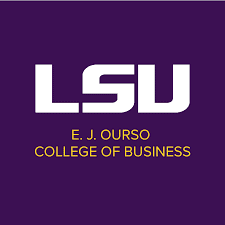Here is a student review for the Louisiana State University Master in Finance program. I hope this helps anyone who is interested in the program.
————————————————-
Why an LSU Master in Finance degree?
1. I settled on LSU based on two main reasons: (a) The program was starting to become revitalized through efforts of the current head of the finance department, (b) the extensive alumni network in the Houston area.
At the time when I was accepted, the finance department had recently hired Joe Mason who is arugably one of the top guys in the nation when it comes to thinly-traded assets/pricing, banking crises, etc (He also has an interesting study on the effects of the oil drilling moratorium – I highly suggest reading if you’re against the current administration’s actions related to drilling).
The current faculty was also really good. Dr. Chance’s risk management class was probably one of the best classes I had taken during my time there. Aside from the purely academic professors, the Baton Rouge community had several qualified professionals who taught classes. The program was also very flexible as far as independent study credit (I, along with 4 other students, “created” a 5-day fixed income analysis course during the summer that qualified for three credit hours. The course was taught by a money manager of a $1.5BB fund in BR.)
Why an MSF and not an MBA?
2. I chose the MSF over the MBA because I could not stand sitting through general management and marketing courses that were required in the MBA program. Also, the first year of the MBA seemed to be the time when professors would get the people with non-business background up to speed with those who had previous business backgrounds. Therefore, it seemed as though I would be wasting a year covering things that I was already familiar with. The master in finance was focused on what I wanted without the fluff and was probably 60% cheaper than the MBA.
Pros and Cons of the program?
3. The program is really big on intern placement year-round (not just a focus on summer internships). I started an internship at a small wealth management firm during my first semester and stayed with them until I moved to Houston. I interviewed with several firms before going to GT; these firms included Stephens Inc. in Little Rock, EDF Trading, BBVA’s energy banking group in Houston, CapOne’s commercial bank in BR, GT valuation, and so on. The program places pretty well.
Several of my friends from the program went on to work with Louisiana’s pension funds, a few are with Stephens. I know of one who just started with a small oil and gas i-bank as well as others who go into commercial banking. There’s not really a downside to the recruitment side at LSU, you just have to reach out to your professors and those in the finance office, and they will try their best to get you interviews.
Anything else that you would like to add?
4. The school became a CFA partner school while I was there, and a few of my classmates participated in a nationwide CFA competition (I’m not sure of the details). CFA prep classes are offered for those eligible to take the test, and the program will offer scholarships for students to minimize the exam costs.
There’s also a quant track under Dr. Chance that lasts for two years rather than the typical 18 months. I haven’t heard of too many people taking that route.
Aside from the academic aspects of the program, Baton Rouge is a great place to be while in school. There’s a ton of things to do in the city, and there’s always LSU football in the fall semester and baseball in the spring. There’s obviously some tight competition between Tulane and LSU as far as the MSF goes, but if one doesn’t want to fork over the $40K/year for the Tulane program, LSU is an excellent choice.
Here is a link to the Louisiana State University Master in Finance program



